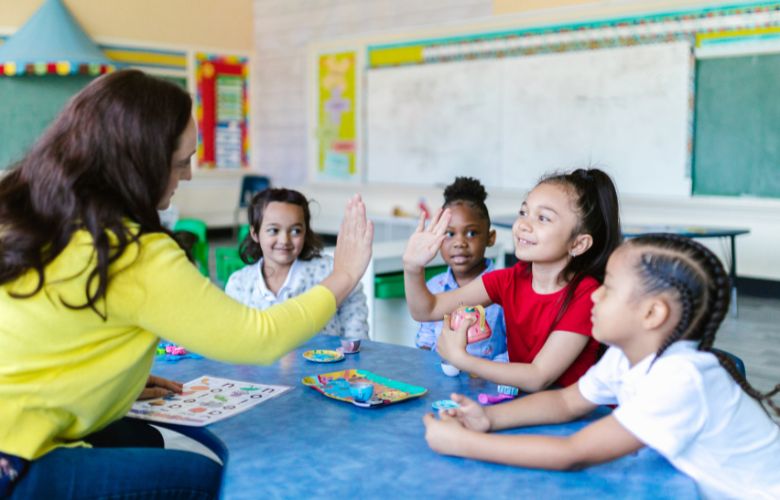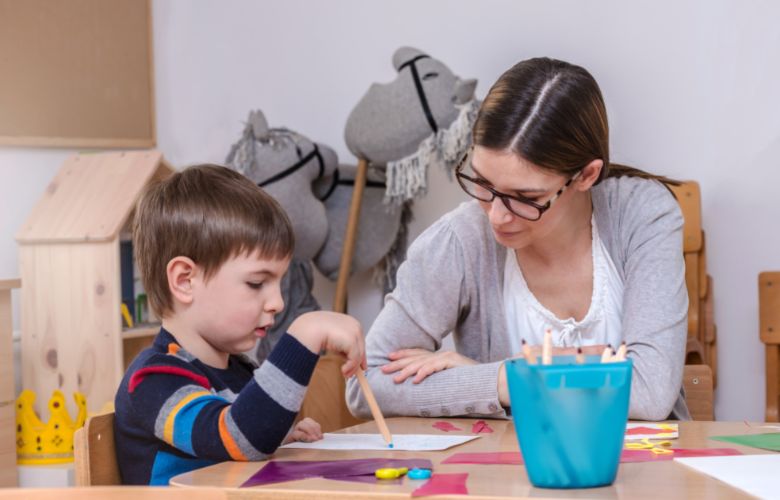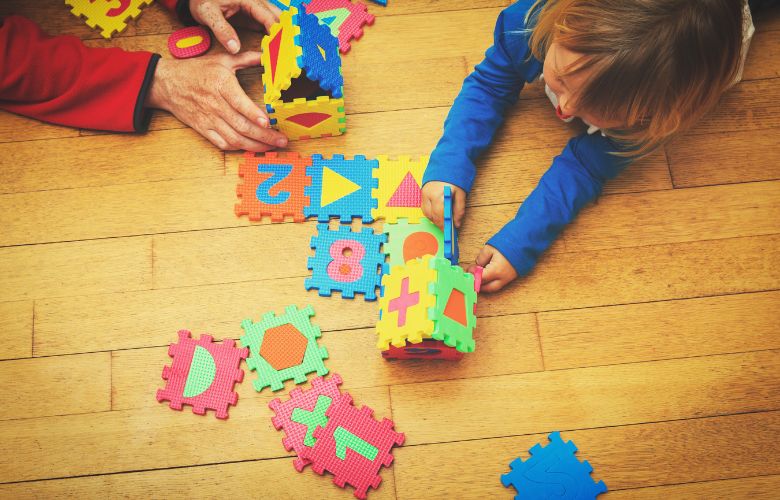Introduction
Kindergarten can be a stressful time for both parents and children. It’s the first year of school, and it’s new and exciting for everyone involved. But it can also be a bit scary. After all, your child is now facing five days at school each week where they will have to make new friends, learn how to read and write, and learn their way around a brand new place. That’s why we’ve decided to create this guide to help parents find the right kindergarten program for their child:
Visit the school

When you visit the school, it’s important to see how the students interact with each other and with the teachers. You should also see what kind of equipment they have available for your child to use. If you’re concerned about a particular school’s security, make sure to ask about their safety procedures and what happens if a student gets sick or hurt during class time.
A school’s location is another thing to consider when choosing which program is best for your child. If you want them close by during school hours then an urban area might not be the best choice since public transportation may not be reliable enough for them to get there safely on their own every day.
Finally, check out how quiet the classrooms are at night if there are too many kids talking loudly in one area, it might be hard for your child to focus on learning new things without being distracted by all those noises. Once you’ve visited several schools, think about which one would be a good fit for your family based on your needs (and budget). If there is more than one option that seems promising but none of them feels right yet. There will surely be another option soon enough.
Talk with Teachers

The first thing you should do when choosing a kindergarten program for your child is to talk with teachers. The right kindergarten school like this kindergarten in Perth will provide you with about the teacher’s credentials, teaching philosophy, experience working with children, expectations for your child, and classroom management style.
The next step is to visit the preschool or school where you are considering enrolling your child. Observe what goes on in the classroom during a typical day there. You want to see how students interact with one another and how often they work independently or in groups (or both). Be sure to observe how much time there is for recess outside as well as indoor playtime within the classroom setting.
It’s also important to talk with their teachers. Your child’s teacher will be able to tell you about the curriculum that is being taught and whether or not it aligns with what your child knows. They can also give you an idea of how much attention your child needs at this age.
If your child is already in school, talk with their teacher about what they’ve learned so far. You may find that there are some gaps in their education or areas where they need more support than others. This information can help you decide whether or not they need extra help before entering kindergarten.
Have your child interview the teacher

Your child is a person, not just a child. They have their personality and opinions, so you must let them voice them. You can do this by having your child interview the teacher at some point before school starts. This will give them an idea of what to expect when they walk into class and how they’ll be treated there.
Have your child ask questions about:
- The classroom setup (if applicable)
- How the teacher works with students individually or in groups
- What types of activities are planned for the year (this gives you more information about what skills might be emphasized)
You should also make sure to ask the teacher what they expect from your child in terms of behavior and academic performance.
Finally, ensure that your child feels comfortable with his new teacher and classmates during his trial period. He should be able to speak up if he has any questions or concerns about anything and if those questions aren’t answered satisfactorily, feel free to take him out of class if necessary.
Find out what they teach

When you’re researching kindergarten programs, there are several factors to consider. You’ll want to look at the curriculum of each program so that you know what your child will learn. A good curriculum will include art, music, and science classes along with reading, writing, and math lessons.
You should also look at the school’s reputation. Schools with a good reputation usually have happy students who are eager to learn new things each day. They often have smaller class sizes so that teachers can give individualized attention to each child’s needs. And make sure that the school has an effective disciplinary policy. Some schools give children a warning before they get into trouble; others put them in detention after only one offense (and sometimes even if they’ve done nothing wrong). This may seem unfair at first glance, but if it means that students are getting more focused attention from teachers then it’s worth looking into further (as long as the teacher-student ratio is reasonable).
Find out how they teach

When you’ve narrowed down your options to a few schools, it’s time to see how they teach.
- Look at the school’s website, and pay attention to its mission statement. Find out what they value most in education. Do they focus on art, music, or science? Or do they have a more holistic approach?
- Ask about their teaching philosophy and curriculum. How do teachers approach the subject matter with students? Are there any “mantras” that drive their teaching practices such as “learning is best when it comes from play,” or “cooperation is more important than the competition”?
- Ask about methods of teaching: What are the most effective ways for students to learn this material? Are there any particular techniques used by teachers (e.g., reading aloud) or resources used in class (e.g., flashcards) that help guide instruction?
- Ask about assessments: How will I know if my child has mastered this material before moving on to the next grade level or skill set? What form does the assessment take tests, quizzes, essays, or projects done by hand-in date and how often will it be administered throughout each year at school?
Another thing to consider when choosing a kindergarten program is whether or not they use technology in their curriculum. Many schools today use iPads or other gadgets in their classrooms as an educational tool so it’s crucial to find out if this is something that would benefit your child at this age or if they would be better off without it.
Listen to your child’s thoughts

When you’re looking at schools, it can be tempting to dismiss your child’s opinion of any particular school as just a phase they are going through, but there might be some wisdom in what they are saying. For example, if they say they don’t like their teacher or the other kids, ask them why and listen carefully. They may have good reasons for feeling that way.
Your child’s kindergarten experience is more important than you might think, so make sure your child will be happy in their choice of school. Do not choose the first “kindergarten” that you visit. Some schools may not offer a full-day program and may only serve children for three hours daily. If this is the case for your school, it might be better to find another option.
Don’t choose the one nearest your home or office. While it’s convenient to drop off your child at one location and pick them up at another, this can hinder their education. It would be better if they were able to spend all day together with other students who are also attending that particular school. If there isn’t a full-day program available nearby, then consider driving further away from where you live/work so they can have a more productive experience while attending kindergarten class during their time off from elementary school later on down the road (which will include sports teams).
Don’t choose based solely on playground equipment either. Parents often pick schools based solely on playground equipment because they think kids need lots of fun things like swingsets or jungle gyms before starting school – but these aren’t necessary at all. Kids just want friends who share similar interests/likes/dislikes with them; plus being around other kids allows them to interact socially without having someone else tell them what they’re doing wrong.
Conclusion
In the end, choosing a kindergarten program for your child should be a deliberate and informed decision. If you’re like most parents, you want what’s best for your little one and that means making sure they have a positive experience in school that sets them up for success as they continue their education. With these six tips, you’ll be able to choose the right environment for your child’s unique needs and personality.
Recommended





